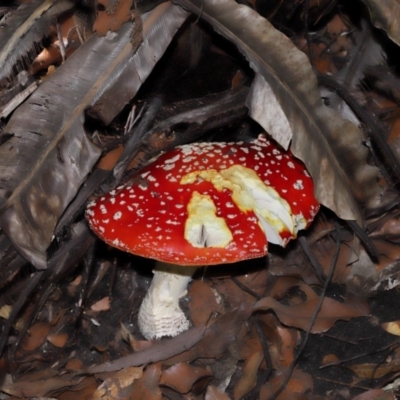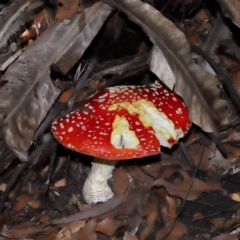Fungus sightings
Generally you see only the spore-producing structure (or fruitbody) of a fungus, the rest being well hidden (e.g. in soil, dung or wood). On Nature Map, fungi are divided into categories (the groups and sub-groups shown on the right) based on fruitbody form. Each category name consists of a descriptive phrase and this may be followed:
[ in square brackets ] by a colloquial name
or < in angled brackets > by a technical term
for what you find in that category. Some examples of colloquial terms are mushroom, bolete and polypore – and these are some of the traditional groupings, that have long been used in fungal field guides aimed at the general public.
Why not use just the colloquial terms as category names?
Mushroom is a word that many people are familiar with but it is used in different ways. Mostly it denotes something fleshy with cap, gills and stem (and that will be the meaning in these notes) but some people add the extra condition that a mushroom must be edible (anything else is a toadstool) and some use it virtually as a synonym of fungus. Experience has shown that other traditional terms (e.g. bolete, polypore) are meaningless to people who have never read anything about fungi. The brief explanations in the category names tell users who are unfamiliar with fungi what sorts of fruiting bodies they’ll find in a given category. Note also that some groups of fungi don’t have well-established colloquial names.
If you click on a category you will see an Overview for it. While the category names help, they must necessarily be short and, to get the most benefit, you should read the Overviews. An Overview may (via Hints) offer more detail about the visual or non-visual features that would help identify your sighting or give some Warnings.
The fungi in a given category need not be closely related and the only aim of this categorization is to help you place your sighting. Many users are likely to take photos of fungi incidentally, without necessarily studying the fungi closely, and so would need to rely on just the photograph when trying to place a sighting. For that reason the categories rely on visual features as far as possible to make it easier for those with no knowledge about fungi. The terms in square brackets aim to help those with some knowledge of fungi and even the more knowledgeable users may find more help within the angled brackets.
How to search
If you are unfamiliar with fungi it is best to start at the top of the list on the right and work your way down until you find something that describes your sighting. First are the Cap on a stem groups. In these the top of the fruitbody is sharply differentiated from a supporting stem. In some fungi the fruit body tapers gradually from a broad apex, but with no such sharp differentiation, hence no proper stem (but a pseudo-stem) and such fungi are not included. On past experience, most fungal sightings will be of mushrooms and they are in the first group.
Why do some genera appear in more than one category?
Long ago, fungal classification was closely tied to fruitbody form but later research showed that closely related species need not have the same fruitbody form. Mostly, all species in a genus have the same form of fruitbody but there are exceptions. As an example, look at these two: Schizophyllum amplum and Schizpophylum commune .
This means that in any categorization based only on macroscopic features there will inevitably be cases where all the species of a genus do not fit into the one category. There are a few instances where it is more sensible to deal with slightly dissimilar fruitbody types together and so though your sighting has a fruitbody that should be in category X, a note there will direct you to category Y.
Use of formal taxonomic categories (e.g. genera, families or orders) would avoid the splitting of genera but such categories would not be easy for a non-expert to use since many such categories rely on microscopic features. Also, dissimilar fruitbodies may be grouped together (as Schizophyllum shows) and two species, with fruitbodies of similar form, may fall into different taxonomic categories.
Warnings
The grouping is based on mature fruitbodies and immature fruitbodies may look different.
Many fungi are not identifiable from photos, no matter how good.
With age frutibodies may become tattered, dowdy and unidentifiable from a photo.
More information
For more about fungi in general see: http://www.cpbr.gov.au/fungi/index.html
.....For more about fruitbody types see: http://www.cpbr.gov.au/fungi/types-of-fungi.html
.....For more about macroscopic features see: http://www.cpbr.gov.au/fungi/macroscopic.html










































































































































































































